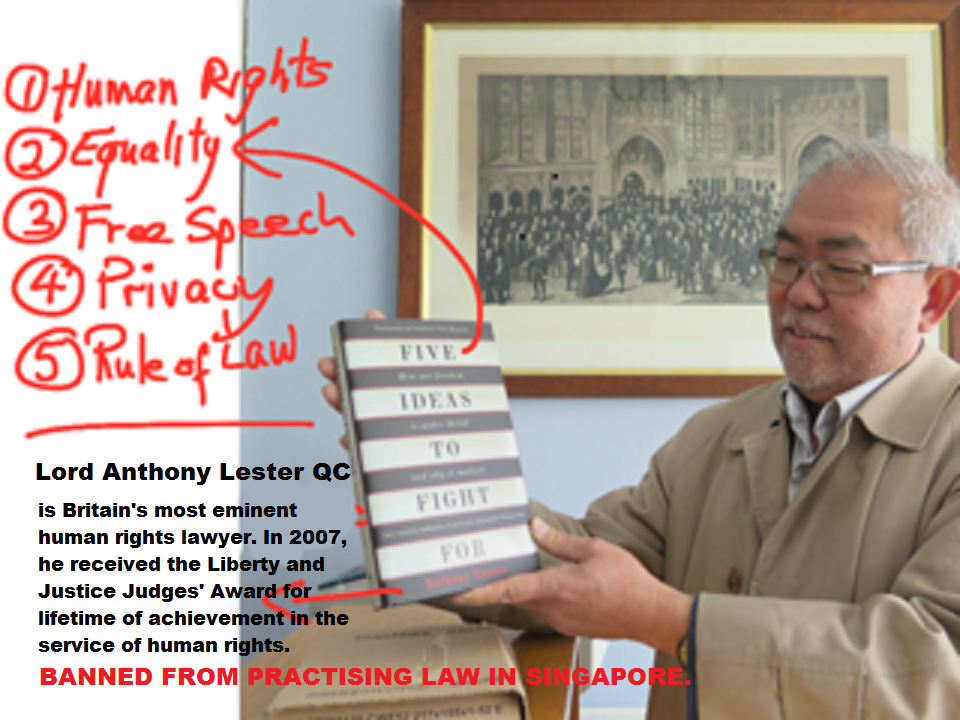By: Tan Wah Piow
I can now share some snippets from Lord Anthony Lester book Five Ideas to Fight For.
Lord Lester QC in this week’s BBC Hardtalk interview described British judges in the earlier years as “reactionary and blinkered.”
In the book he made reference to a 1980 death penalty case. He represented Ong Ah Chuan in an appeal from Singapore’s court to the Privy Council. Ong was found guilty of trafficking in heroin, and faced a mandatory death sentence. The presiding judge was Lord Diplock, who he described as “a judge whose intellect far exceeded his compassion”.
Lord Lester failed in his attempt to rescue Ong because “the court did not think it their role to question the decision of the authorities in Singapore, even though that was their constitutional duty”.
Lord Diplock did not allow him to cite an American case. In his book, he noted: “As Diplock must have known, the American decisions supported my argument that a mandatory death penalty was unconstitutional.” “The Singapore’s Constitution offered guarantees of liberty and equal protection of the law in the same terms as the American Bill of Rights.”
Fortunately twenty years later, in another death penalty case before the Privy Council presided over by another Judge, the Ong’s case was not followed because, according to Lord Lester, the presiding judge Lord Bingham stated tactfully that human rights jurisprudence at the time had been ‘rudimentary’. If Singapore did not amend the Constitution to remove the Privy Council as the Apex court, yesterday’s execution of Koh Jabing in Singapore could probably be avoided.
Of his experience in Singapore when he represented Teo Soh Lung in a Judicial Review challenge to seek her release from detention without trial, Lord Lester wrote: “I was followed everywhere and vilified by the Singapore press as I was flying back to London.”
He observed that “There may be a little more political freedom now in Singapore but it is still not a country governed by the rule of law”.
On Malaysia, he observed that the state of the rule of law “has not recovered” since the removal of Tun Salleh Abas, the head of the Malaysian judiciary by the then Prime Minister Mahathir.
“Singapore and Malaysia are of course not the only countries where the rule of law has been undermined. Their significance is that they belong to the Commonwealth and are meant to share the principle of the rule of law as part of their common law heritage. The Hong Kong judiciary have shown the way in upholding the rule of law in spite of being subject to the People’s Republic of China.”
The book is essential reading for every law student in Singapore and Malaysia.

